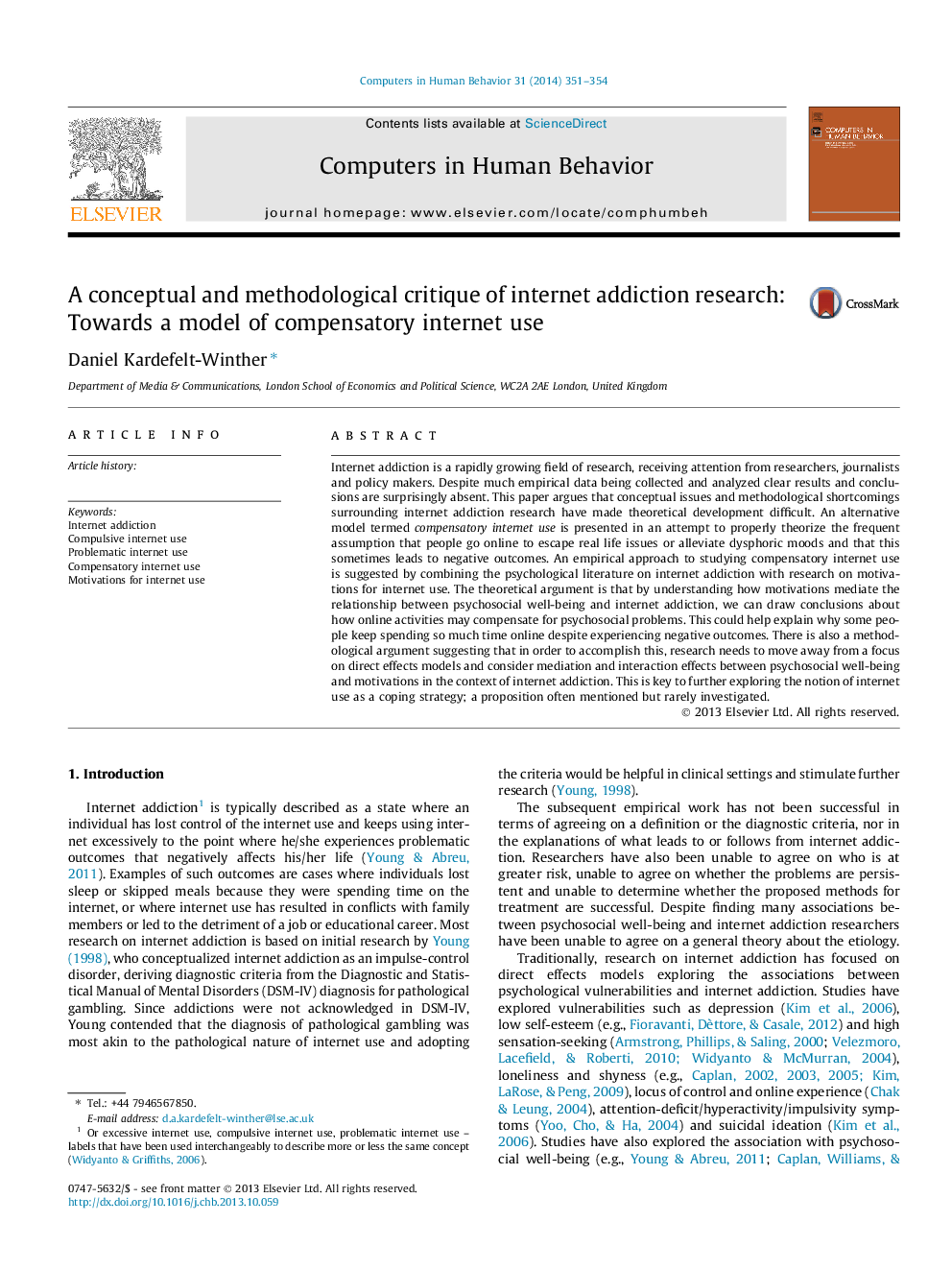| Article ID | Journal | Published Year | Pages | File Type |
|---|---|---|---|---|
| 6839508 | Computers in Human Behavior | 2014 | 4 Pages |
Abstract
Internet addiction is a rapidly growing field of research, receiving attention from researchers, journalists and policy makers. Despite much empirical data being collected and analyzed clear results and conclusions are surprisingly absent. This paper argues that conceptual issues and methodological shortcomings surrounding internet addiction research have made theoretical development difficult. An alternative model termed compensatory internet use is presented in an attempt to properly theorize the frequent assumption that people go online to escape real life issues or alleviate dysphoric moods and that this sometimes leads to negative outcomes. An empirical approach to studying compensatory internet use is suggested by combining the psychological literature on internet addiction with research on motivations for internet use. The theoretical argument is that by understanding how motivations mediate the relationship between psychosocial well-being and internet addiction, we can draw conclusions about how online activities may compensate for psychosocial problems. This could help explain why some people keep spending so much time online despite experiencing negative outcomes. There is also a methodological argument suggesting that in order to accomplish this, research needs to move away from a focus on direct effects models and consider mediation and interaction effects between psychosocial well-being and motivations in the context of internet addiction. This is key to further exploring the notion of internet use as a coping strategy; a proposition often mentioned but rarely investigated.
Related Topics
Physical Sciences and Engineering
Computer Science
Computer Science Applications
Authors
Daniel Kardefelt-Winther,
